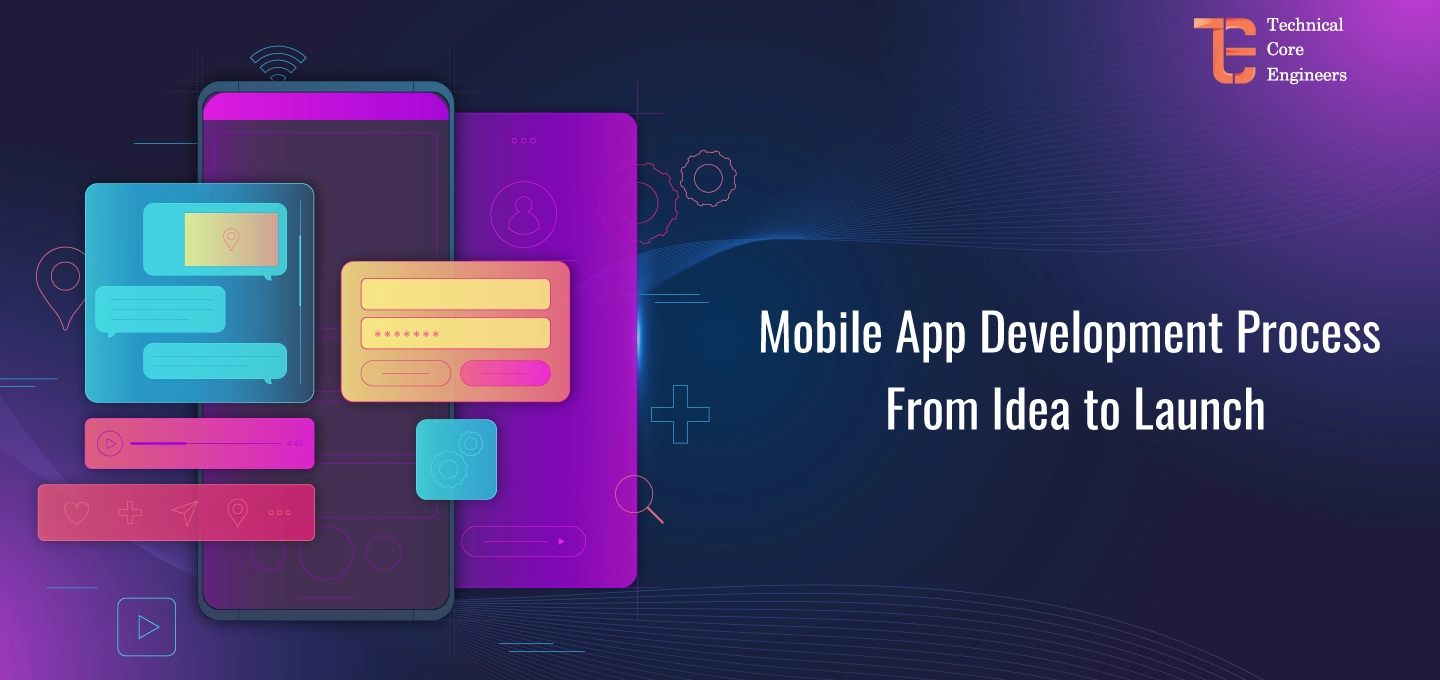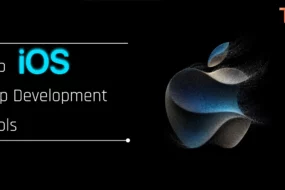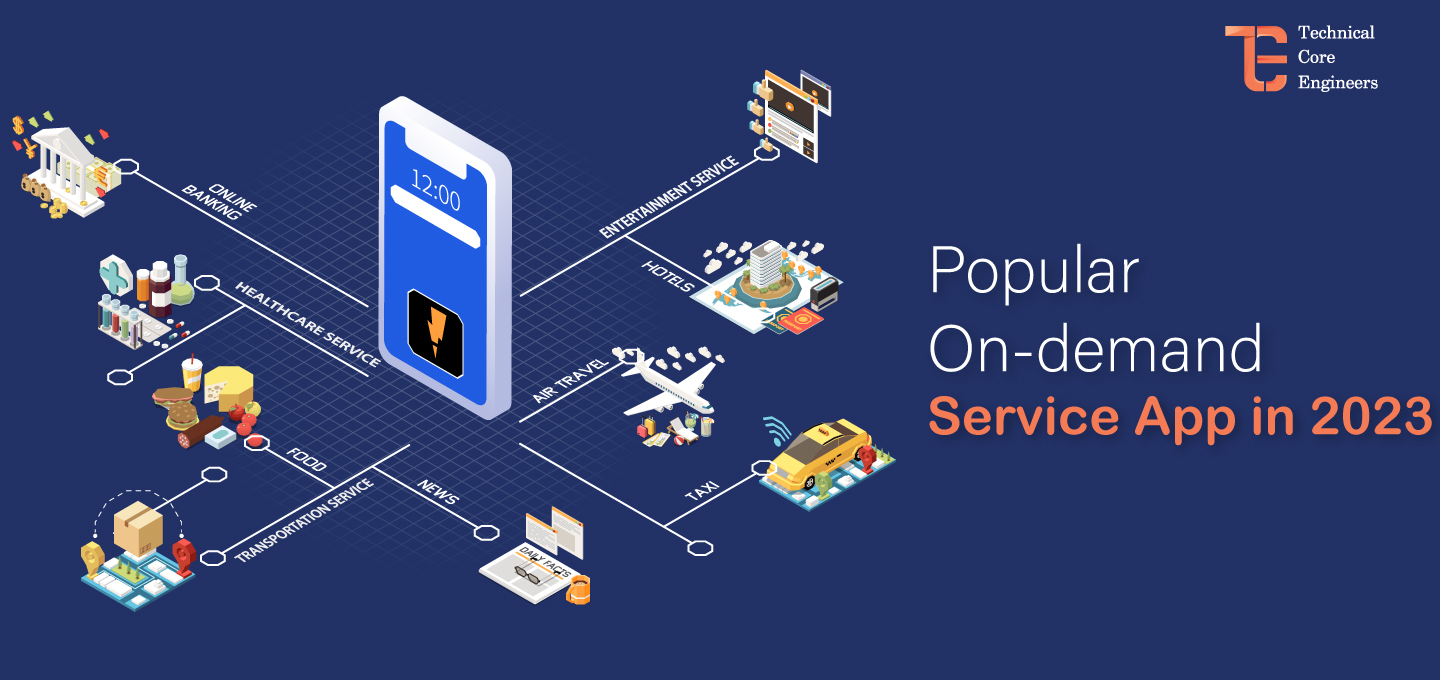- Home
- App Development
- Mobile App Development Process ...

Mobile app development has become an integral part of the digital landscape, transforming the way we interact with technology and enhancing our daily lives. From social networking and entertainment to productivity and e-commerce, mobile apps have revolutionized the way we access information, communicate, and conduct business.
In this era of smartphones and tablets, the demand for innovative and user-friendly mobile applications continues to rise. Also, It requires a combination of technical expertise, creativity, and a deep understanding of user needs and preferences.
Moreover, Whether it’s an app for iOS or Android, the process of mobile app development involves a series of steps, from conceptualization and design to coding and deployment.
Furthermore, In this ever-evolving field, staying updated with the latest trends, technologies, and best practices is crucial for successful mobile app development.
It involves constant learning, adaptation, and keeping up with the changing demands of the market. Mobile app development encompasses a wide range of industries and uses cases, including gaming, healthcare, finance, education, and more.
Also, With the right app development framework and tools, developers can create intuitive, feature-rich, and visually appealing apps that captivate users and provide them with seamless experiences.
In this blog, Tecoreng will delve into the world of mobile app development, exploring the various aspects involved in creating compelling apps. We will cover topics such as app ideation, UI/UX design, frontend and backend development, testing, deployment, and post-launch maintenance.
Whether you’re an aspiring app developer, a business owner considering a mobile app, or simply interested in understanding the intricacies of this field. So, this blog will provide you with valuable insights and practical guidance to embark on your mobile app development journey.
Mobile App Development
Mobile app development encompasses the entire process of conceptualizing, designing, coding, testing, and deploying applications for mobile platforms like iOS and Android. Also, It requires a blend of technical skills, creativity, and a deep understanding of user experience.
Additionally, With mobile apps, businesses can reach a wider audience, improve customer engagement, and provide unique value through features like real-time notifications, location-based services, and personalized experiences. Developers leverage various frameworks, programming languages, and development tools to bring these apps to life.
From gaming and social media to productivity and e-commerce, mobile apps have permeated virtually every aspect of our lives. The continuous evolution of mobile technology and the demand for seamless, intuitive, and visually appealing applications drive constant innovation in app development.
In today’s digital era, mobile apps have become an integral part of our lives, providing us with convenient access to information, services, and entertainment on the go.
The development process typically includes steps such as ideation, user interface (UI) and user experience (UX) design backend development, integration of functionalities, testing, and deployment to app stores.
The field of mobile app development is constantly evolving, with new technologies and trends emerging regularly. Developers leverage programming languages such as Swift, Java, Kotlin, or React Native to build native or cross-platform apps.
They also integrate features like push notifications, location services, payment gateways, and social media integration to enhance app functionality and user engagement.
Mobile app development offers immense opportunities for businesses. They connect with their customers, streamline processes, and create new revenue streams. From gaming and social networking to e-commerce and healthcare, mobile apps cater to a wide range of industries and user needs.
Finally, This blog Technical Core Engineers will provide you with valuable insights and practical tips to navigate the dynamic field of mobile app development.
10 Points to Keep in Mind When Creating Mobile Apps

Creating a mobile app requires careful planning, execution, and attention to detail. Here are some essential points to consider during the mobile app development process:
1. Define Clear Objectives
Clearly define the objectives and purpose of your app. Identify the problem it solves, the target audience, and key features that differentiate it from competitors.
2. User-Centric Design
Put the user at the center of your app’s design. Understand their needs, preferences, and pain points to create a seamless and intuitive user experience (UX). So, Conduct user testing and gather feedback to refine the design.
3. Platform Selection
Determine the target platforms for your app, such as iOS, Android, or both. Consider the user demographics, market share, and technical capabilities of each platform to make an informed decision.
4. Choose the Right Technology Stack
Select the appropriate technology stack based on your app’s requirements. Consider factors such as scalability, performance, development time, and cost. So, Popular options include native app development, hybrid frameworks like React Native or Flutter, or progressive web apps (PWAs).
5. Backend Development
Develop a robust backend infrastructure to support your app’s functionality. Choose a suitable backend technology, such as cloud services or serverless architecture to handle data storage, user authentication, APIs, and other server-side operations.
6. Agile Development Approach
Adopt an agile development approach to iteratively build and test your app. Break down the development process into smaller sprints, allowing for continuous feedback and improvements. Also, This helps in adapting to changing requirements and delivering a high-quality product.
7. Testing and Quality Assurance
Implement thorough testing processes to ensure the stability, performance, and security of your app. Conduct functional testing, compatibility testing, and performance testing. Additionally, security testing is to identify and resolve any issues before launch.
8. App Store Guidelines
Familiarize yourself with the guidelines and policies of app stores, such as the Apple App Store and Google Play Store. Ensure that your app meets its requirements regarding design, functionality, content, and user privacy.
9. Regular Updates and Maintenance
Plan for regular updates and maintenance post-launch. Continuously improve your app based on user feedback, add new features, and fix bugs to keep users engaged and satisfied.
10. Analytics and User Feedback
Integrate analytics tools into your app to gather insights on user behavior, usage patterns, and performance metrics. So, Encourage users to provide feedback and ratings, allowing you to make data-driven decisions for future enhancements.
Mobile App Development Process From Idea to Launch
The app development process involves several crucial steps that take an idea from inception to a fully functioning and deployed mobile application. Also, if you research the “best mobile app development company in India“. Look no further! Just schedule a call with our next-level developers. Here’s a brief overview of the typical app development process, from idea to launch:
– Ideation and Conceptualization
The first step is to generate and refine your app idea. Identify the problem it solves, the target audience, and the unique features that set it apart from existing apps. Also, Conduct market research to validate the demand and feasibility of your concept.
– Planning and Wireframing
Create a detailed plan outlining the app’s functionality, user flow, and technical requirements. Develop wireframes and mockups to visualize the app’s interface and user experience.
– Design
Design the user interface (UI) and user experience (UX) of your app. Focus on creating an intuitive and visually appealing interface that enhances usability and engages users. Design elements such as color schemes, typography, and iconography play a crucial role in branding and app recognition.
– Development
Develop the front end and back end of your app. Choose a suitable programming language, framework, and platform based on your target audience and app requirements. Develop the user interface, implement features and functionalities, and integrate APIs and third-party services as needed.
– Testing and Quality Assurance
Thoroughly test your app to ensure its functionality, performance, and user experience. Conduct different types of testing, including functional testing, and usability testing. Additionally, it’s compatibility testing, to identify and fix any bugs or issues. Seek feedback from beta testers or focus groups to gather insights for further improvements.
– Deployment
Prepare your app for deployment by creating developer accounts on relevant app stores such as the Apple App Store and Google Play Store. Follow the guidelines and submission requirements of each platform, including app metadata, app screenshots, and descriptions. So, Test the app thoroughly on different devices and ensure it meets the platform’s policies and guidelines.
– Post-Launch Support and Maintenance
Once your app is live, monitor its performance, user feedback, and analytics to identify areas for improvement. Release regular updates and bug fixes to address user concerns and provide new features. Maintain backend infrastructure, ensure server scalability, and handle user support inquiries.

To, Wrap Up
Finally, Launching a successful mobile app requires a strategic approach, attention to detail, and continuous improvement. Throughout the process, stay open to user feedback and market trends to refine and enhance your app’s features and functionality. So, With proper planning and execution, your app has the potential to make a positive impact and achieve success in the competitive app market. if, Do you have trouble finding the “best mobile app development company in India”. Look no further! Just schedule a free call with our next-level developers





